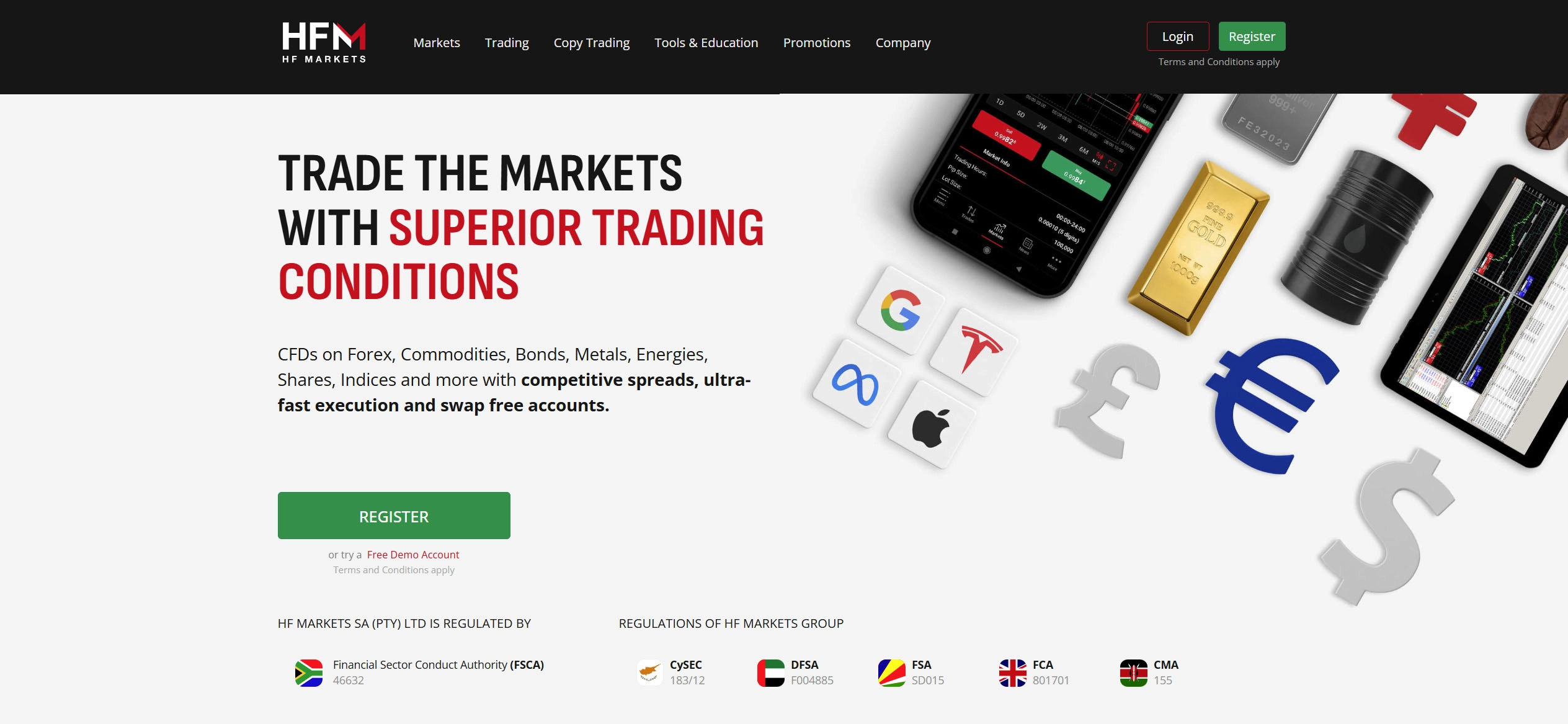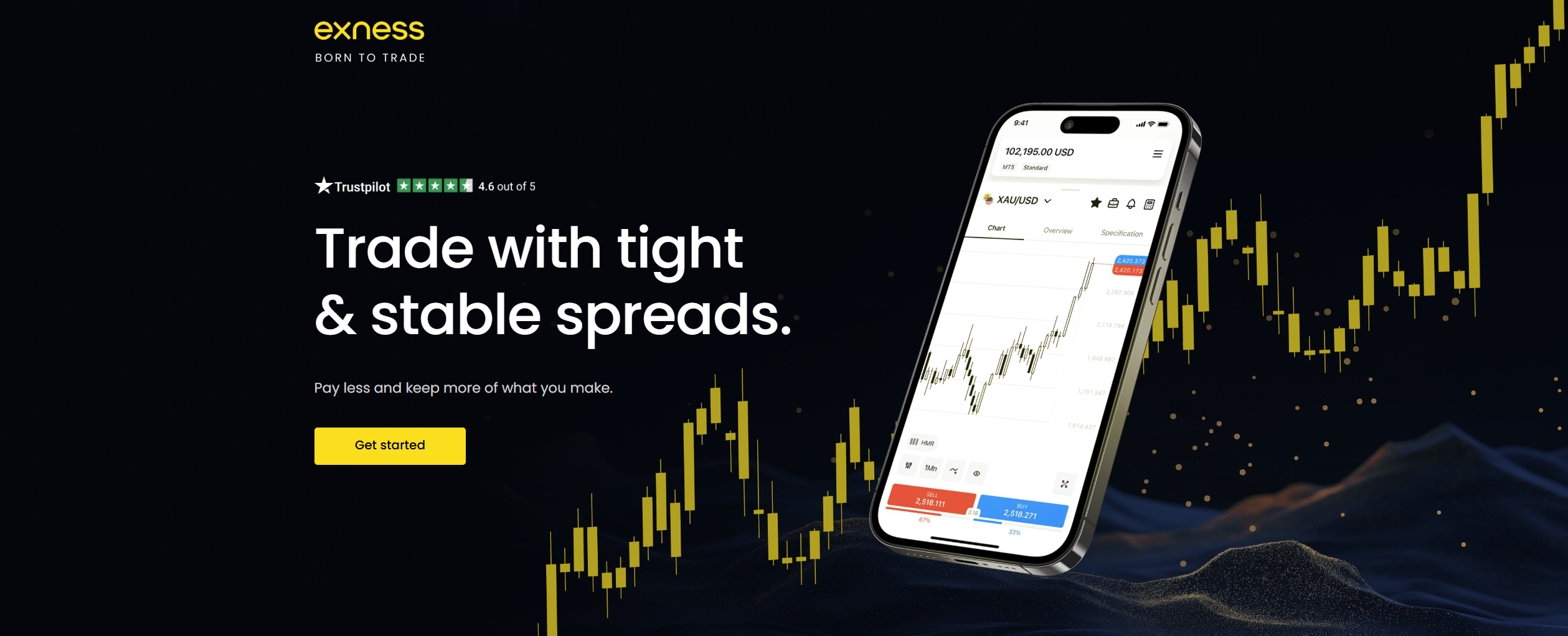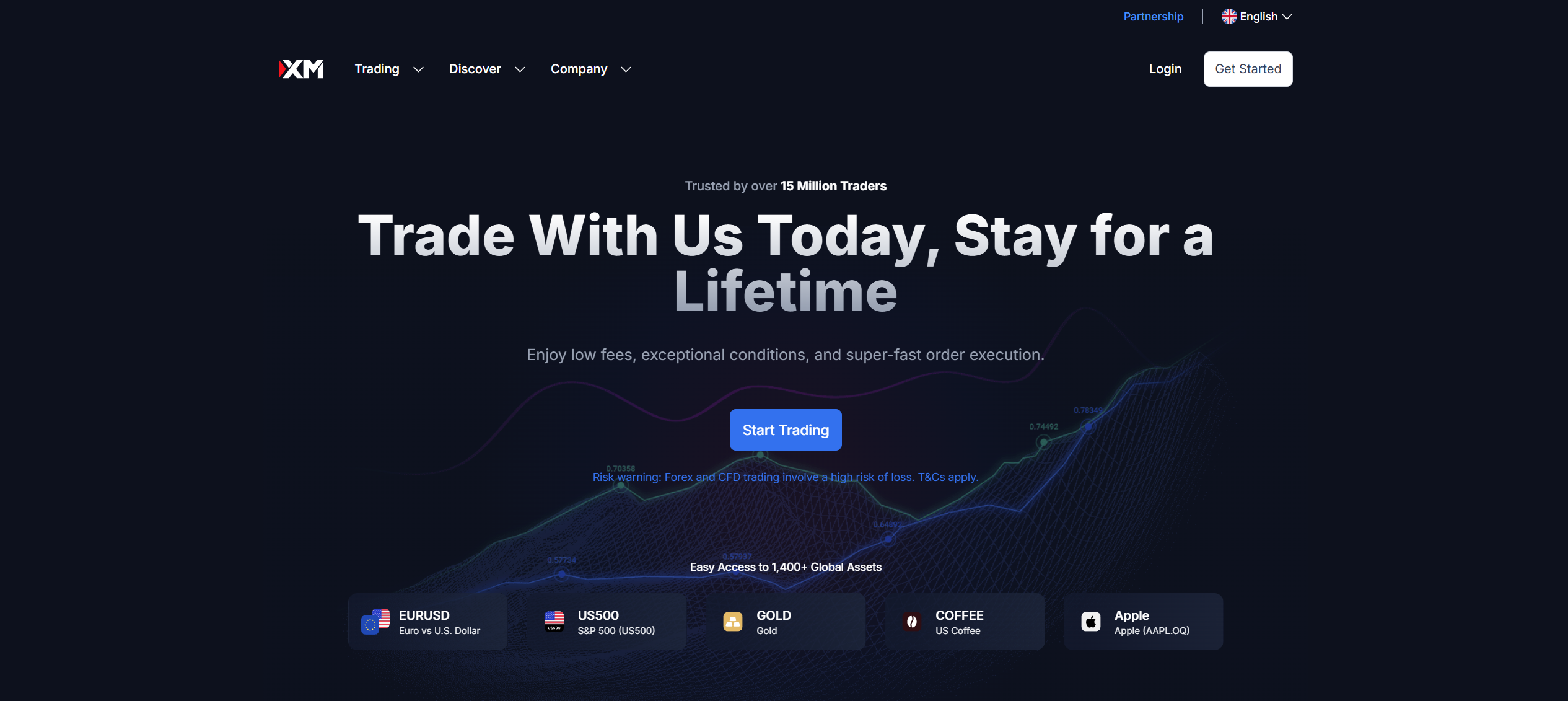What is an Islamic Trading Account
For Muslim traders, navigating the world of online trading can present unique challenges due to the principles of Sharia law. Traditional financial instruments often involve interest (Riba), which is strictly prohibited in Islam. This is where the concept of an Islamic trading account, also known as a swap-free account, becomes crucial. These specialised accounts are designed to align trading activities with Islamic finance principles, enabling Muslim individuals to participate in global financial markets without compromising their faith.
In this comprehensive guide, we will explore what an Islamic account is and how it works. We will also highlight some brokers that offer Islamic trading accounts to traders.
What is an Islamic Trading Account?
An Islamic trading account is a type of account designed to follow Islamic (Sharia) law. Its main purpose is to avoid things that are considered forbidden (haram) in Islam. In particular, Islamic accounts aim to remove the paying or earning of interest, known as Riba. In regular Forex or CFD trading, traders usually pay interest (called swap fees) for holding positions overnight. Islamic accounts remove these interest charges to stay in line with Islamic finance rules.
Beyond the absence of Riba (swap fees), Islamic finance operates on several other key principles that shape these accounts:
- Immediate Exchange (Hand-to-Hand) - Transactions must involve the immediate transfer of ownership of the underlying assets or currencies. Brokers achieve this by ensuring near-instantaneous execution of trades and settlement of transaction costs.
- Prohibition of Gambling (Maysir) and Excessive Uncertainty (Gharar) - Islamic finance discourages speculative activities where the outcome is purely by chance or involves excessive ambiguity. While trading inherently carries risk, Sharia-compliant trading emphasises informed decision-making and genuine economic activity rather than pure speculation.
- Risk and Profit Sharing (Musharakah and Mudarabah) - Instead of fixed interest, Islamic finance promotes models where profits and losses are shared equitably between parties. In the context of brokerage, this means that the broker's revenue should come from legitimate services rather than interest-based charges.
An Islamic trading account seeks to integrate these principles into the modern trading environment, providing a viable and ethical pathway for Muslim traders.

How Does an Islamic Trading Account Work?
The primary mechanism by which an Islamic trading account achieves Sharia compliance is by eliminating swap fees. In conventional trading, holding a position overnight incurs a swap fee, which is an interest charge. This is considered Riba and therefore not allowed in Islam. Brokers who offer Islamic accounts ensure that the accounts do not involve any swap charges.
To compensate for the revenue loss from swap fees, some brokers offering Islamic accounts may charge alternative Sharia-compliant fees. These can include:
- Administration Fees/Holding Fees - Instead of an interest-based swap, a fixed daily or periodic administration fee may be charged for positions held overnight for more than a certain grace period. This fee serves as a service charge for facilitating the trade, rather than interest.
- Wider Spreads - Some brokers might slightly widen the spreads (the difference between the buy and sell price of an asset) on Islamic accounts to compensate for the absence of swap revenue. However, many reputable brokers strive to keep spreads competitive.
- Commissions - For certain account types, especially ECN or Raw Spread accounts, traders may pay a commission per traded lot. This commission is permissible as it's a direct charge for the service of executing the trade, unrelated to interest.
It's crucial for traders to understand that while swap fees are absent, there are still costs associated with trading. These typically include spreads and commissions, which are generally permissible under Sharia law as they represent a fee for service or a direct cost of accessing the market.
Halal Trading Considerations
Beyond the account structure, Muslim traders should also consider:
- Underlying Assets - While Forex trading itself is generally considered permissible due to its exchange-based nature, trading certain assets might be considered "haram." For example, shares of companies involved in alcohol, gambling, pork production, or interest-based banking are typically avoided. Islamic accounts often restrict access to such instruments or clarify permissible trading assets.
- Leverage - The use of leverage in Islamic trading is a debated topic among scholars. Some experts may consider the use of high leverage levels as introducing excessive risk (Gharar) or resembling interest-based loans. However, some consider it acceptable especially when traders use it responsibly, and where the broker charges a fee for the service rather than interest. The key is that the profit and loss are still tied to the market movement, not a fixed return on the borrowed capital.
- Immediate Settlement - Transactions should ideally be settled immediately. In modern electronic trading, this is largely not an issue due to instantaneous execution, which aligns with the hand-to-hand principle.
Top Brokers That Offer Islamic Trading Accounts
HFM
HFM is a global broker popular for its diverse account types and trading conditions. The broker caters to Muslim traders by offering Islamic account types that align with Sharia law. HFM provides swap-free trading on five of its account types: Cent, Premium, Zero, Pro, and Pro-Plus. The only account that does not support swap-free trading is the Top-up Bonus account.
The Premium account offers spreads starting from 1.2 pips, while the Cent account provides slightly tighter spreads beginning at 1.0 pips. Both accounts have no commissions on forex positions. The Pro account provides spreads from 0.5 pips, and the Pro-Plus account offers spreads from 0.2 pips, with no commission on forex pairs. However, the Zero Spread account features spreads from 0.0 pips but includes a $3 commission per side per lot.

It's important to note that Carry Charges may apply to certain instruments if a trader holds a position for a given consecutive number of days. The exact duration before these charges kick in depends on the specific market instrument.
On a positive note, HFM offers traders access to a deep collection of market products. This includes CFDs on forex, energy, indices, stocks, metals, bonds, commodities, cryptocurrencies, and ETFs. The trading platforms available to use include MetaTrader 4, MetaTrader 5, and the HFM Platform.
Further, HFM is a well-regulated broker in several jurisdictions. The broker operates under the supervision of the DFSA in Dubai’s DIFC, the CMA in Kenya, the FSCA in South Africa, the FSA in Seychelles, and the CySEC in Cyprus, among others.
Remember that Forex and CFDs available at HFM are leveraged products.
Their trading can result in the loss of your entire capital.
Exness
Exness is another globally recognised broker that offers Islamic trading accounts tailored to meet the needs of Muslim traders. The swap-free option is available across all its trading accounts. These include the standard, the standard cent, the pro, the raw spread, and the zero accounts. The trading conditions that traders receive depend on the account that they choose.
The Standard account provides spreads starting at 0.2 pips for major currency pairs, while the Standard Cent account offers spreads from 0.3 pips for major pairs. The Pro account features even tighter spreads, starting at 0.1 pips. These three accounts do not charge commissions. In contrast, the Zero account offers spreads from 0.0 pips on the top 30 instruments, with a commission starting at $0.05 per side per lot. The Raw Spread account also has spreads from 0.0 pips, with a commission of up to $3.5 per side per lot.

It's important to note that eligibility for an Islamic (swap-free) account depends on the trader’s country of residence. Exness provides a list of countries eligible for automatic swap-free account status, which traders can check on the website. Even so, Exness offer swap-free trading to clients in non-Islamic countries on specific assets like gold, indices, cryptocurrencies, and some forex pairs. This typically applies when traders do not primarily trade during market hours or hold large overnight positions.
Traders on Exness enjoy access to a wide variety of markets, including CFDs on forex, metals, cryptocurrencies, energies, stocks, and indices. These instruments are available through MetaTrader 4, MetaTrader 5, and the proprietary Exness Terminal.
Exness is also popular for its strong regulatory status. The broker holds licenses from several reputable authorities, including the JSC in Jordan, the FCA in the UK, the CySEC in Cyprus, and the FSCA in South Africa.
Remember that Forex and CFDs available at Exness are leveraged products.
Their trading can result in the loss of your entire capital.
XM
XM is a well-known global forex and CFD broker offering both Standard and Swap-Free (Islamic) accounts to cater to a diverse clientele. The Islamic account is specifically designed for traders who wish to adhere to Sharia principles. Unlike many brokers, XM doesn't widen spreads or impose additional charges to compensate for the absence of swap fees.
The Islamic account at XM offers spreads starting from 0.8 pips on major currency pairs, with no commissions. This mirrors the conditions of the XM Ultra Low account. By comparison, the Standard account features spreads from 1.6 pips, also without any commission.

XM provides access to a wide range of financial instruments, including CFDs on forex, stocks, indices, shares, energies, cryptocurrencies, and precious metals. Traders will find a great selection of trading platforms, including MetaTrader 4, MetaTrader 5, and the XM trading app.
Furthermore, XM is a well-regulated broker, enhancing its credibility and appeal in the industry. The broker holds regulatory licenses from several institutions, including the CySEC, the ASIC in Australia, and the FSC in Belize.
75.18% of retail investor accounts lose money when trading CFDs with this provider.
Choosing the Right Islamic Trading Account
When selecting an Islamic trading account broker, consider the following factors:
- Broker's Adherence to Sharia Principles - Ensure the broker genuinely understands and implements Sharia-compliant practices. This is not only by removing swaps, but also in their overall fee structure and instrument offerings.
- Transparency of Fees - Verify how the broker compensates for the absence of swap fees. Are there administrative charges, wider spreads, or commissions? Compare these costs with conventional accounts to understand the true expense. Brokers like XM, which claim no extra charges, are particularly notable.
- Instrument Availability - Check if the broker offers the instruments you wish to trade and if any specific instruments are excluded from swap-free conditions or are considered haram.
- Regulation and Trustworthiness - Always choose a broker regulated by reputable financial authorities to ensure the safety of your funds and fair trading practices.
- Trading Platforms - The trading platform offered by a broker will be your gateway to the markets. Ensure you choose a broker that offers user-friendly platforms with advanced capabilities.
- Customer Support - Responsive and knowledgeable customer support is vital, especially for questions related to Islamic account specifics.
- Educational Resources - A broker that provides educational materials on Islamic finance and trading can be a valuable resource for traders.
Conclusion
Islamic trading accounts are an important tool for Muslim traders who want to take part in global financial markets while staying true to their religious beliefs. These accounts are designed to follow Islamic (Sharia) law by removing interest-based charges, also known as swaps.
Since earning or paying interest (Riba) is forbidden in Islam, swap-free accounts offer a way to trade that avoids this issue entirely. Islamic accounts also follow other key principles of Islamic finance, such as fair dealing, transparency, and avoiding hidden costs. This makes them not only religiously acceptable but also more ethical and easier to understand for traders who value clarity.
Brokers like Exness, HFM, and XM have done a good job in offering swap-free options for Muslim traders. Nonetheless, there are many other quality brokers that offer this account option to Muslim traders. In the end, Islamic accounts make it possible for Muslim traders to join the world of forex and CFD trading without compromising their faith.
With the right broker and a clear understanding of the rules, you can trade with confidence, knowing that your trading is in line with your beliefs.
Top-Tier Trusted Brokers
The table below contains links to 3rd party websites of our top partners from whom we receive compensation at no additional cost to you.






























